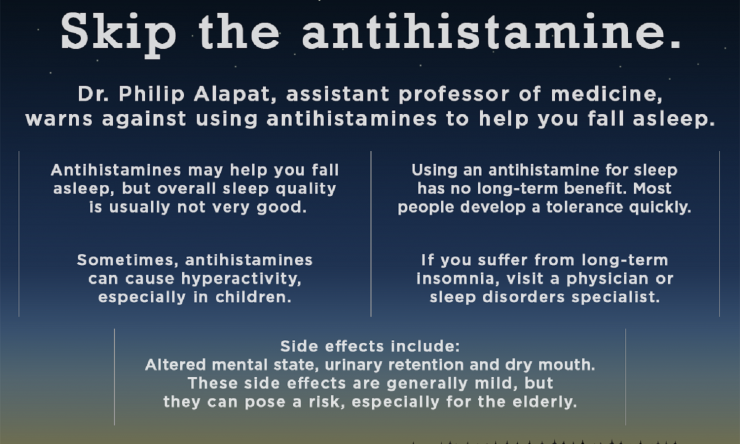Benadryl, also known as diphenhydramine, is a popular over-the-counter medication used to treat allergies. While it is generally considered safe and effective when taken as directed, Benadryl can be abused and in some cases, it can lead to addiction. In this article, we’ll explore the signs and symptoms of a Benadryl addiction and discuss the potential risks and dangers associated with abusing this medication.

Can Benadryl Induce Drug Addiction?
Benadryl is an over-the-counter antihistamine medication commonly used to treat allergies and allergic reactions. While it may not be as widely abused as some other drugs, Benadryl can still cause physical and psychological dependence or addiction when taken in large doses for extended periods of time. The risk of addiction increases when the medication is taken in combination with other drugs or alcohol.
Benadryl is an antihistamine that works by blocking the action of histamine, a chemical released by the body in response to certain triggers. This helps reduce the symptoms of allergies and allergic reactions, such as sneezing, itchy eyes, and a runny nose. It is also used to treat motion sickness, insomnia, and other conditions. Benadryl is available in both pill and liquid forms, and is generally taken orally.
What are the Side Effects of Benadryl Abuse?
When taken in higher doses than recommended, Benadryl can cause users to experience a sense of euphoria, which can be addictive. Common side effects of Benadryl abuse include drowsiness, dizziness, confusion, impaired coordination, blurred vision, dry mouth, and constipation. In more serious cases, Benadryl abuse can lead to seizures, coma, and even death.
In addition to physical side effects, Benadryl abuse can also lead to psychological dependence. Users may become preoccupied with obtaining and using the drug, and may continue using it despite experiencing negative consequences. Benadryl abuse can also lead to financial and social problems, such as job loss or strained relationships.
How to Treat Benadryl Addiction
Treatment for Benadryl addiction typically begins with medical detoxification, which helps to reduce withdrawal symptoms and minimize cravings. During detox, medical professionals can also monitor the patient and provide supportive care.
Once detox is complete, the patient can begin therapy and counseling to address the underlying psychological issues that may have contributed to the addiction. Therapy can also help the patient learn new coping skills and develop healthier habits. In some cases, medication may be prescribed to help reduce cravings and reduce the risk of relapse.
Are There Any Alternatives to Benadryl?
There are several alternatives to Benadryl that may be safer and more effective for treating allergies and allergic reactions. These include antihistamines such as loratadine and cetirizine, decongestants such as pseudoephedrine, and corticosteroid nasal sprays. In some cases, immunotherapy or allergy shots may also be used to reduce sensitivity to allergens.
What are the Long-Term Effects of Benadryl Abuse?
Long-term effects of Benadryl abuse can include liver and kidney damage, respiratory depression, and an increased risk of miscarriage in pregnant women. In addition, long-term abuse of Benadryl can lead to memory loss, confusion, and impaired cognitive functioning.
Can Benadryl Abuse Lead to Death?
Yes, Benadryl abuse can lead to death in certain cases. Although rare, death from Benadryl abuse can occur due to an overdose of the medication, or from a combination of the medication and alcohol or other drugs. It is important to follow the label instructions when taking Benadryl and to speak to a doctor or pharmacist if you have any questions or concerns.
Related Faq
What is Benadryl?
Benadryl is an over-the-counter antihistamine medication used to treat allergies, colds, and hay fever. It is also used to treat itching and rashes caused by insect bites, poison ivy, and other skin irritations. It is available in the form of tablets, capsules, syrups, and creams. Benadryl is the brand name for the drug diphenhydramine.
What are the side effects of Benadryl?
Common side effects of Benadryl include drowsiness, dizziness, dry mouth, constipation, and blurred vision. More serious side effects may include confusion, agitation, restlessness, nausea, vomiting, and difficulty breathing.
Can You Get Addicted to Benadryl?
Yes, it is possible to become addicted to Benadryl. Prolonged use of Benadryl can lead to physical and psychological dependence. If Benadryl is taken in large doses or over a long period of time, a person may develop tolerance, meaning they will need more of the drug to reach the same effect. This can lead to addiction.
What are the signs of Benadryl addiction?
The signs of Benadryl addiction include cravings for the drug, difficulty sleeping without taking Benadryl, needing more of the drug to achieve the same effect, changes in mood, and withdrawal symptoms when the drug is not taken.
What is the treatment for Benadryl addiction?
Treatment for Benadryl addiction typically involves a combination of medication, counseling, and support. Medications such as naloxone can be used to reduce the effects of withdrawal. Counseling can help the person learn healthy coping skills to manage their addiction and support groups can provide a safe and supportive environment to share experiences.
What are some alternatives to Benadryl?
There are a number of alternatives to Benadryl, including non-drowsy antihistamines such as loratadine and cetirizine, nasal sprays such as azelastine, and topical medications such as hydrocortisone. It is important to speak with a doctor about the best option for the individual and to discuss any potential side effects.
Benadryl Brain Warning
In conclusion, Benadryl can be addictive and can cause serious health problems. It is important to be aware of the potential risks associated with its use and to seek medical advice before taking it. If you or someone you know is struggling with addiction to Benadryl, seek professional help as soon as possible. It is possible to break the cycle of addiction and to live a healthier, happier life.
